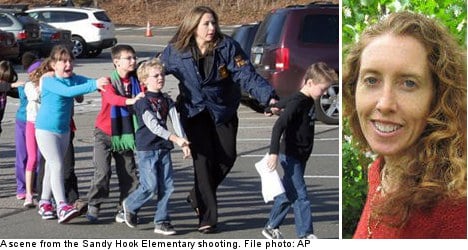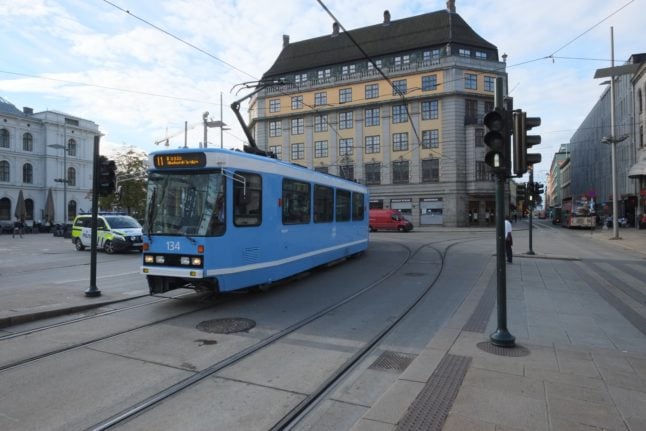In the days leading up to the Christmas holidays, while Swedish news is filled with complaints about snow removal and Disney’s cuts on the Christmas Eve classic “Santa’s Workshop,” the US news has been dominated by a much darker event: the shooting at Sandy Hook Elementary School that took the lives of 20 children and six adults.
Here, as a token representative of “America” across the Atlantic, the question I’ve fielded most in the wake of this tragedy is this: Why does the US government allow its citizens to own guns at all, let alone semi-automatic weapons?
Why doesn’t the country follow in the footsteps of Japan (or, for that matter, Sweden) and heavily restrict or ban gun ownership?
This is a hard question for me to answer, especially since I personally don’t agree that ordinary citizens should own guns. However, when asked these questions, I feel like I owe my native country a more thoughtful explanation.
The right to bear arms is, after all, the Second Amendment to the Constitution; a fundamental piece of the Bill of Rights. In fact, the amendment advocates for a “well regulated militia” as “necessary to the security of a free state.”
Yikes.
While I personally believe the Second Amendment is an outdated relic from another, much different society, I do recognize this fundamental stumbling block: If you start messing with the groundwork of the country, where do you stop? Does this mean that other rights, like freedom of speech, for example, can also be revoked?
And so the debates about gun control, mental health care, and other related factors begin.
But the question I haven’t been asked, the question that is just as relevant, is this: how do US parents feel about sending their kids to school every day after an event like this?
It is not, of course, the first school massacre to shake a quiet suburban town. And it’s only “successful” mass shootings that make national news; kids who bring guns to school but do not succeed in shooting anyone only make local news, if that.
While it’s true that, statistically, it’s much more dangerous for a child to get into a car than to go to school in the US, many of my US friends attest that there’s something about this kind of senseless violence that makes it hard to be rational.
Coming from California, often portrayed on film as a sunny, warm and glamorous paradise, I’m often asked by Swedes why we moved here. The incident at Sandy Hook is an awful and extreme example of the trade-off we made when we moved: “exciting” (but, for the record, not particularly warm or sunny) San Francisco for safer Sweden.
While Sweden, like all societies, has its problems, it is generally a wonderful place to be a child.
And as I dropped my own son Erik off at his elementary school today, I reflected once again on how happy I am that my kids are spending their younger years here.
It is a society where our kids can safely ride their bikes to school—in California, our suburban street was so dangerous that we had to drive our bikes to the local park in order to ride.
To my knowledge, schools do not spend time every year warning kids about “stranger danger.” The idea that a shooter might come to Erik’s school in Sweden has never once entered my mind.
Of course, it is still possible that our child could also be the victim of a school shooting. In fact, just last year, Sweden’s neighbor Norway hosted its own horrible mass shooting.
But I really, truly believe it’s extremely unlikely to happen to us here in Sweden. I wouldn’t feel quite as confident if I lived back in the U.S.
What is it about Sweden that makes it feel safer here? A social safety net that includes mental health care? Fewer guns? Bike paths and slower traffic?
I’m not sure, but the difference is striking. Most kids here don’t spend their childhoods in fear of all the dangers in society. And neither do the parents.
I, like many others around the world, want my children to live in a more peaceful world, a world less driven by fear. A peaceful childhood in Sweden seems to be a good start.
It’s something Sweden does well, something that many other countries could learn from.
Rebecca Ahlfeldt is an American ex-pat writer, translator and editor currently based in Stockholm.



 Please whitelist us to continue reading.
Please whitelist us to continue reading.
Member comments